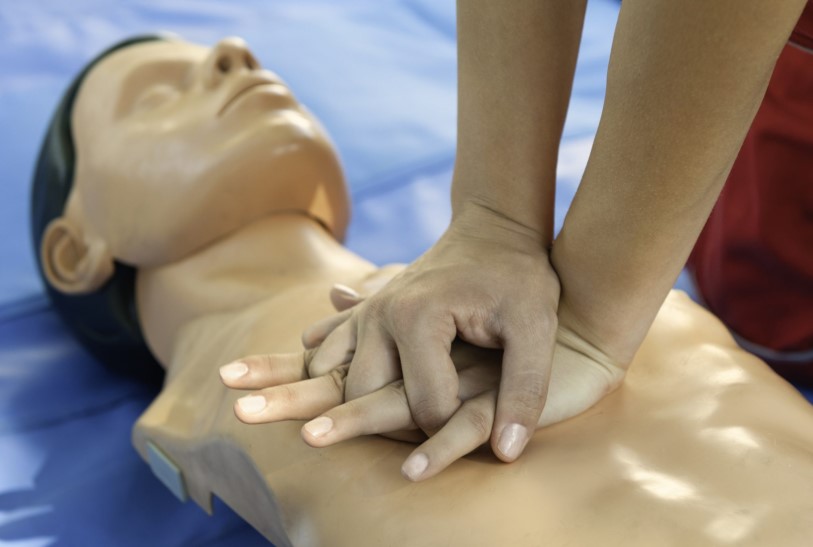Should You Get CPR Certified?

February 05, 2020
When a person stops breathing or goes into cardiac arrest, CPR—or cardiopulmonary resuscitation—can save their life.
The emergency procedure uses chest compressions that help keep blood flowing throughout the body to mimic how the heart pumps.
Unfortunately, a majority of Americans are unprepared to help in this type of emergency. According to the American Heart Association, 70 percent of Americans either do not know how to effectively administer CPR or have let their training lapse.
Who Should Get Certified?
While many individuals are required to learn CPR for their job—police officers, firefighters, health care providers—it’s a skill that most individuals should challenge themselves to master, says Kelly DiFabio, D.O., an emergency department physician at Ocean University Medical Center.
That’s because nine out of 10 cases of cardiac arrest happen outside of a hospital, where trained emergency professionals can’t always immediately jump in. But if a trained bystander administers CPR within the first few minutes, they can double or triple the victim’s chance of survival.
“Basic life support is something that everyone should know because it can be needed at any time,” Dr. DiFabio says. “You’ll be ready to jump into action anytime that you're around someone who collapses.”
In some cases, however, the need to learn CPR is more urgent than others, including:
- Adult caregivers
- Babysitters or daycare employees
- Boy Scout or Girl Scout leaders
- Coaches for kids’ sports teams
- Outdoor adventure or tour guides
At the same time, many states are requiring CPR training as a pre-requisite for high school graduation. According to the American Heart Association, 38 states have now passed such laws.
Skill Retention Is Key
Becoming trained in CPR shouldn’t be a one-time thing. The American Red Cross Scientific Advisory Council reports that CPR skill retention declines within a few months of initial training. They recommend recertification to refresh your memory, renew your skills and stay up to date on the latest techniques.
Next Steps & Resources:
- If you’re ready to become CPR certified, there are many classes available. Find a class near you.
- American Heart Association
- Red Cross
The material provided through HealthU is intended to be used as general information only and should not replace the advice of your physician. Always consult your physician for individual care.
